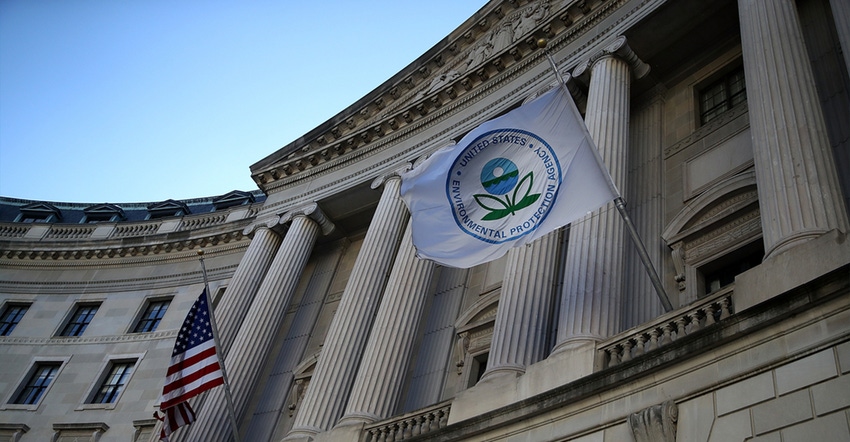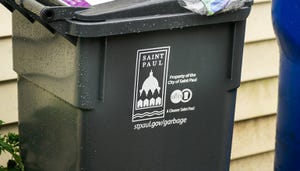Waste Industry Discusses State and National Legislative Trends

Legislatives issues abound on state and federal levels are impacting operations at waste facilities across the United States.
Scott Hutchings, director of government affairs, Waste Management, navigated the WasteExpo session, “ Legislative Updates by Region,” which covered a number of topics that are causing waste, recycling and organics industry to adjust how they dispose of, transport and process materials.
Panelists included:
Keyna Cory, president, Public Affairs Consultants
Dan Jameson, vice president, government & regulatory affairs, Republic Services
Andy Moss, government affairs manager, Waste Connections
From bottle bills to climate change to extended producer responsibility, the session was an examination of what will be on waste industry radar in the next year.
On PFAS....
Per- and polyfluoroalkyl substances (PFAS) issues will flow into climate and environmental legislative measures in the next five years, says Jameson.
“While there's a perception that you know landfills are PFAS problems, landfills are pretty vast receivers,” he explains. “We do not generate PFAS, per se, but that has become a big issue for the industry. There's currently no restrictions relative at the federal level for waste management for liquids management and gas management.”
With 12 different legislative pieces on the federal level that deal with water quality and the disposal of PFAS, the big question is what will change in regard to disposal.
“There’s one bill that says you can’t incinerate it,” Jameson says. “There's another bill, just the opposite, that says you can incinerate it. So, you've got a lot of those issues that they're really trying to figure out.”
The EPA has now started the regulatory process, but Jameson anticipates that the industry is not going to see any movement on the federal level in the immediate future. States have picked up the ball, with 28 states introducing PFAS registration. More than 180 state-level bills addressing PFAS are currently at some stage of the regulatory process.
“In the meantime, you have a lot of states that have kind of jumped out and set their own standards. Some have lowered the rates. You’re going to see more and more that things do not get done in Washington, states fill those gaps with different kinds of PFAS legislation. So, that’s really something [to] keep your eyes on and given there's 180 bills in the states.”
On COVID....
With the United States resuming pre-COVID level economic operations, the industry is maneuvering through operational changes including the question of vaccines and other health and safety measures.
Keyna Cory drew parallels to her experience in Vegas versus her home base and how different states have mandated the use of personal protective equipment (PPE) and vaccines.
“Naturally, [COVID] was our big deal last year. I don't know about you, but walking around Vegas, it's like it's all over,” she describes. “I mean it's like everybody's just waved the magic wand said now let's move on. But, COVID was very serious for us in Florida and in Southeast area, where the legislature decided to go ahead and pass legislation regarding liability.”
However, there is a silver lining to the pandemic. COVID caused people to think about recycling more because “they were sitting at home looking at these items for 14 months,” Keyna says.
In New York, customers have been inquiring about worker vaccinations.
Andy Moss reports that, “we are seeing, especially in New York City, our customers are starting to ask if our workers have been vaccinated. That is leading to operational issues and it's just in terms of making sure that we're sending vaccinated workers to the right place and whether we feel comfortable asking our workers. We believe that legally you can ask your workers; you can even mandate that they be vaccinated.”
That is not a decision that Waste Connections has determined as of yet, and the company is currently determining how to progress with the issue, he adds.
On Organics…
With chatter about California’s SB 1383 organic food recovery bill, other municipalities and states are examining policy that would divert food waste from landfill.
Hutchings says government officials in the city of Denver are looking at legislative measures to require composting for commercial entities and residents. The ballot initative would cause sweeping change in the city without considering the operations implications to the waste industry.
“It's fascinating to us this is a ballot initiative that the elected officials were not for, but it is going to get on the ballot and probably passed,” he says, “I'm sitting there going, sure, it might pass but we don't have any capacity to do this.”
Waste Management manages the Denver landfill and has a 30-acre compost pad, but the measure would strain capacity as “hundreds and hundreds of tons of compost” would challenge the company’s operations.
“That's another issue that I see popping up throughout the west where you have cities, states, elected officials who want to push that envelope, without actually checking in with those of us who do the operations or who have to do to work,” Hutchings says.
On EPR...
The topic of Extended Producer Responsibility continues to pick up steam. Jameson comments that EPR measures are "going to proliferate across the U.S. next year even more."
“Being in Washington, you're not seeing a lot of things getting passed, but you are seeing a lot of bills being introduced relative to packaging and some levels of EPR at the federal level," Jameson says. "[This is] not as active as it is at the state level where we're seeing a lot of EPR legislation introduced.”
More than a dozen bills that would shift responsibilities to consumer brands have been introduced from Maine to Oregon. At the federal level, the Break Free from Plastic Pollution Act addresses EPR.
If passed, the bill would require packaging manufacturers to carry out the task and financial burden of the "design, collection, reuse, recycling, and disposal of their consumer products and packaging, to prevent pollution from consumer products and packaging from entering into animal and human food chains and waterways, and for other purposes."
Support for bottle bills and EPR bills comes into question as environmental groups and individuals wonder whether it is just greenwashing.
"Somebody sued Coca-Cola in California saying this is just an effort for you to greenwash and not really deal with the problem," Jameson says. He compared current legislation to early efforts to change e-waste programs across the country.
"I think that's a challenge that everybody's got to be cognizant of, especially when educating legislators as to you know what happens when the money runs out and who's going to really be responsible if you have producer responsibility," he says.
About the Author(s)
You May Also Like




